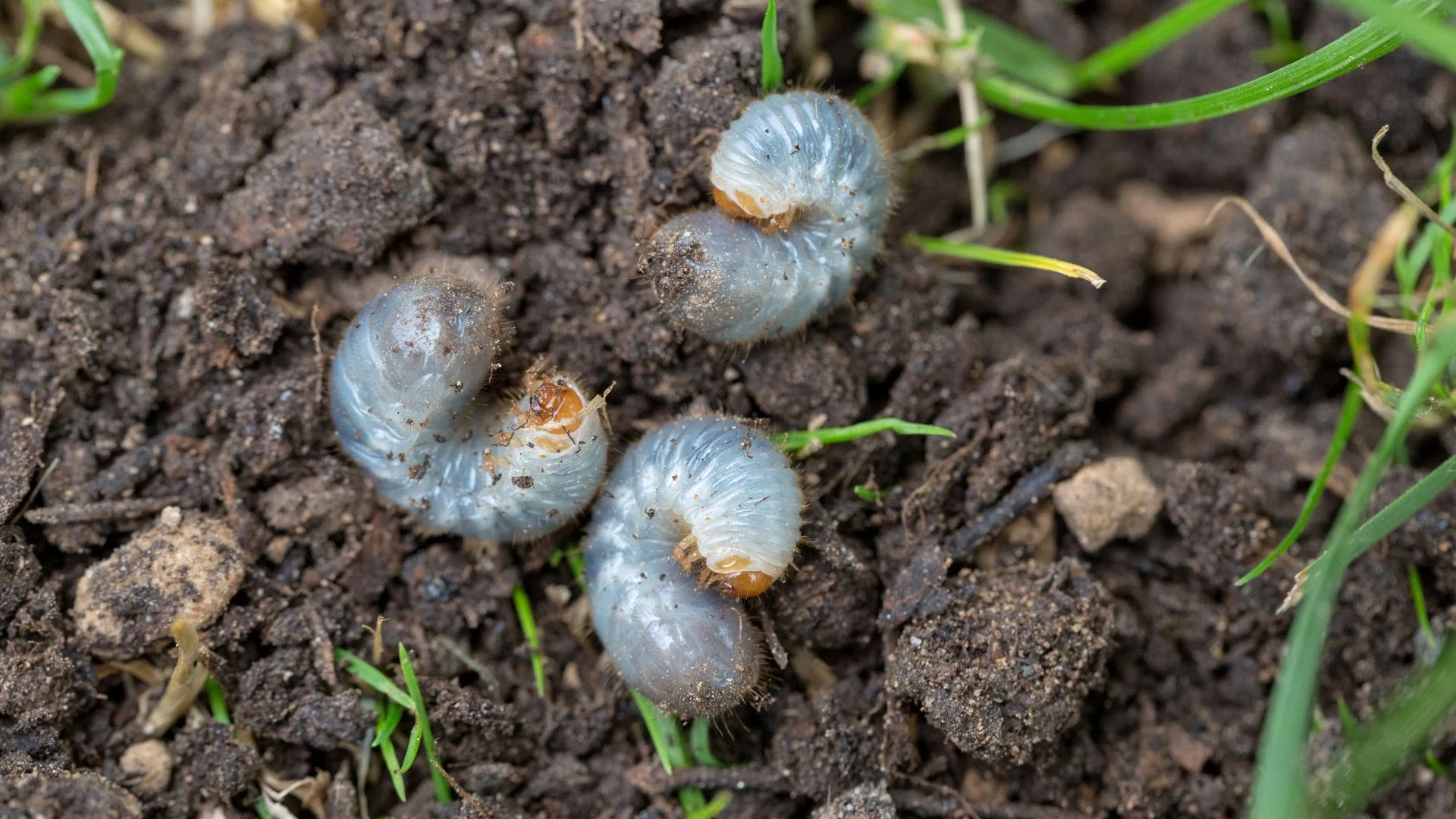In Michigan, several lawn insects can cause significant problems for your turf, including grubs, chinch bugs, billbugs, cutworms, and sod webworms. Grubs, the larvae of beetles, feed on grass roots, causing lawns to become spongy and easily pulled up. Chinch bugs suck the sap from grass blades, leading to yellow or brown patches. Billbugs chew on grass stems and roots, resulting in wilting and dead patches. Cutworms feed on grass blades, leaving circular patches of dead grass. Sod webworms create silken tunnels in the grass and feed on the blades, causing irregular brown patches. If you notice any of these signs, it's crucial to contact professionals to address the issue promptly and protect your lawn from further damage.
1. Grubs

Grubs are one of the most common lawn insects that can cause significant damage to your turf. These are the larvae of beetles, and they feed on the roots of your grass. As they feed, they detach the roots from the soil, causing your lawn to become spongy and easy to pull up like a carpet. If you notice patches of dead or dying grass that can be easily lifted, it's a sign that grubs may be present.
2. Chinch Bugs

Chinch bugs are another common lawn pest that can wreak havoc on your grass. These tiny insects feed on the sap of grass blades, causing them to turn yellow or brown and eventually die. They inject toxins into the grass as they feed, further damaging it. Chinch bugs are most active during hot and dry weather conditions, which is when they can cause the most damage.
3. Billbugs

Billbugs are a type of weevil that can cause extensive damage to your turf. These insects chew on the stems and roots of grass, causing them to wilt and die. They lay their eggs in the grass stems, and the larvae feed on the inside, creating tunnels as they grow. As the larvae continue to feed, they can completely sever the grass stems, leading to large patches of dead grass.
If you notice wilting or dying grass with hollow stems, it's a sign that billbugs may be present. To effectively deal with a billbug infestation, it's best to contact professionals who can accurately identify the issue and apply the appropriate treatments to eliminate the billbugs and restore the health of your lawn.
4. Cutworms

Cutworms are the larvae of certain moth species and can cause significant damage to your turf. These nocturnal insects feed on grass blades, cutting them off at the base. They are most active during the night and hide in the soil during the day. As they feed, they create circular patches of dead grass, which can quickly spread if left untreated.
If you notice circular patches of dead grass or see cutworms on your lawn, it's important to contact professionals to address the issue. They can accurately diagnose the problem and implement the necessary treatments to eliminate the cutworms and prevent further damage to your turf.
5. Sod Webworms

Sod webworms are the larvae of certain moth species and can cause extensive damage to your grass. These insects create silken tunnels in the grass and feed on the grass blades. As they feed, they create irregular brown patches in the lawn. Sod webworms are most active during the night and hide in the thatch layer during the day.
Call us today to schedule our lawn insect control service.
If you're dealing with a lawn insect infestation, we are the company to call. At Tuff Turf, we offer a lawn insect control service that includes treatments for grubs, chinch bugs, billbugs, cutworms, and sod webworms. We offer this service to property owners in Grand Rapids, Holland, Rockford, and surrounding areas in West Michigan. Give us a call today at (616) 554-9499 to schedule our lawn insect control service and protect your lawn from damage-causing pests!



Comments (0)
Thanks for your comment!
Thanks for your feedback! Your comments have been successfully submitted! Please note, all comments require admin approval prior to display.
Error submitting comment!
There is a problem with your comment, please see below and try again.